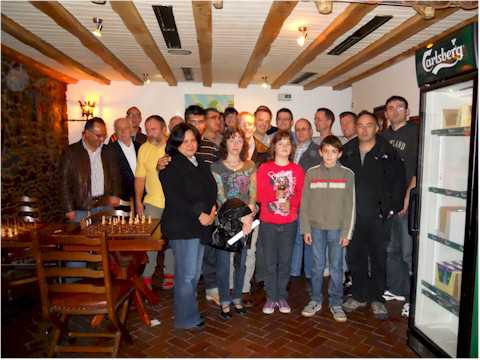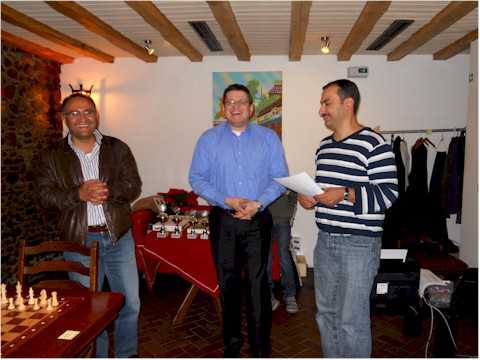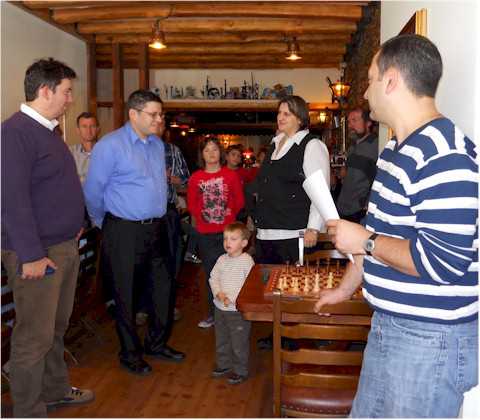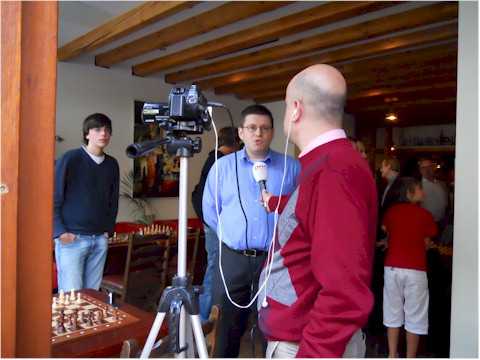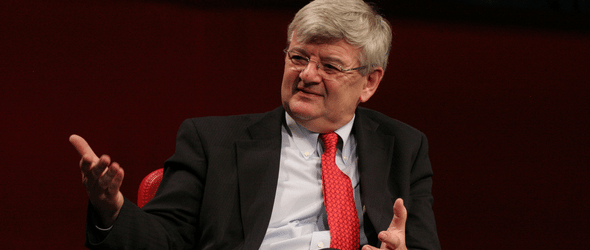Published: 18 October 2010
Germany’s attempt to create a multicultural society has “utterly failed,” Chancellor Angela Merkel said on 16 October, adding fuel to a debate over immigration and Islam polarising her conservative camp.
Background
Germany’s Turkish community has around 2.5 million members. In the sixties, Germany, the Netherlands, Belgium and France asked Turkey to provide a labour force for their booming employment markets. A flow of hundreds of thousands of Turkish ‘guest workers’ followed.
However, following the economic stagnation of 1967, Western countries stopped issuing work permits. Following the 1973 oil crisis, they declared that they had abolished immigration for employment purposes.
According to the results of an Interior Ministry study released earlier this year, Turks are the minority group in Germany with the most pronounced integration problems. The study said around one in five Turks living in Germany spoke either “bad” or “no German at all” and that language difficulties were the main obstacle to the successful integration of Turkish immigrants.
Thilo Sarrazin, a Social Democrat politician and board member of the German Federal Bank, published last August a book in which he deplored the lack of intellectual performance among some ethnic groups in Germany and of Muslims in particular. The centre-left SDP party is now trying to get Sarrazin expelled. He has already lost his job at the Federal Bank.
Speaking to a meeting of young members of her Christian Democrats (CDU), Merkel said allowing people of different cultural backgrounds to live side by side without integrating had not worked in a country that is home to some four million Muslims.
“This [multicultural] approach has failed, utterly failed,” Merkel told the meeting in Potsdam, south of Berlin.
Merkel faces pressure from within her CDU to take a tougher line on immigrants who don’t show a willingness to adapt to German society and her comments appeared intended to pacify her critics.
She said too little had been required of immigrants in the past and repeated her usual line that they should learn German in order to get by in school and have opportunities on the labour market.
The debate over foreigners in Germany has shifted since former central banker Thilo Sarrazin published a book accusing Muslim immigrants of lowering the intelligence of German society.
Sarrazin was censured for his views and dismissed from the Bundesbank, but his book proved highly popular and polls showed a majority of Germans agreed with the thrust of his arguments.
Merkel has tried to accommodate both sides of the debate, talking tough on integration but also telling Germans that they must accept that mosques have become part of their landscape.
She said on Saturday that the education of unemployed Germans should take priority over recruiting workers from abroad, while noting Germany could not get by without skilled foreign workers.
In a weekend newspaper interview, her Labour Minister Ursula von der Leyen (CDU) raised the possibility of lowering barriers to entry for some foreign workers in order to fight the lack of skilled workers in Europe’s largest economy.
“For a few years, more people have been leaving our country than entering it,” she told the Frankfurter Allgemeine Sonntagszeitung. “Wherever it is possible, we must lower the entry hurdles for those who bring the country forward.”
The German Chamber of Industry and Commerce (DIHK) says Germany lacks about 400,000 skilled workers.
Yet Horst Seehofer, chairman of the Christian Social Union (CSU), the CDU’s sister party, has rejected any relaxation of immigration laws and said last week there was no room in Germany for more people from “alien cultures.
(EurActiv with Reuters.)
Positions
German President Christian Wulff arrives in Ankara today (18 October) as the first German head of state to visit Turkey in over 10 years. In the light of the current media frenzy over Muslim integration, he will be facing the most difficult visit of his young presidency, Deutsche Welle reports.
Wulff is set to give a speech before the Turkish parliament, the first ever by a German leader, in which he will most likely address the topic of integration of Muslim immigrants in German society.
Wulff’s recognition of Islam as “part of Germany,” which he expressed during a speech to the nation during reunification celebrations earlier this month, set off a row in Germany, sparking several high-ranking politicians to address the topic publicly, Deutsche Welle recalls.
Angela Merkel’s speech was the clearest sign yet that the debate on migration and multiculturalism is now open, even in Germany where it was practically taboo, writes The Independent in a leading article.
“While Ms. Merkel’s forthright words suggest that she intends to lead the debate from now on, it was not she who started it. This dubious honour belongs to Thilo Sarrazin, a former boardmember of the Bundesbank, whose recent book, Germany Abolishes Itself, and attendant magazine articles, shocked the country’s establishment, first, by what many saw as its racist content and, second, by its swift rise to the top of the best-seller list.”
“Mr. Sarrazin resigned from the Bundesbank last month, after condemnation from Ms. Merkel, among others. That she has now addressed the subject herself, however, demonstrates how quickly the context has changed. Mr. Sarrazin raised spectres that were too dangerous to be left to become flesh and blood on the far right. They had to be tackled head-on.”
“Germany now joins France, Belgium, the Netherlands and – so far, to a lesser extent, Britain – in questioning the multicultural approach adopted by governments for many years. If integration is now to be the focus, however, the effort will have to be two-sided. As well as requiring migrants to do more, governments and the indigenous population will have to try harder, too. And this will take funds – for language tuition, better schooling and homes – at a time when money is in very short supply,” the Independent concludes.
Polls indicate that a growing number of Germans believe that too many of the country’s foreigners live in what are often referred to as “parallel communities” with little or no connection with German culture, the Wall Street Journal writes.
“Germany’s anemic birthrate has fueled fears that ethnic Germans will eventually be outnumbered by other groups, adding a sense of existential angst to the public discourse. Germany, with about 80 million citizens, is Europe’s largest country but its birthrate is among the lowest in Europe and demographers predict that it will be overtaken in population by the UK and France in the coming decades,” adds the WSJ.


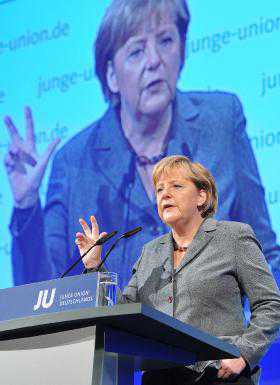

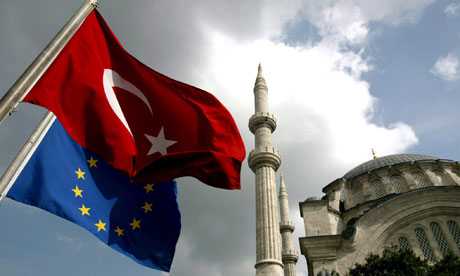
 German Chancellor Angela Merkel hinted Saturday her country’s backing to Turkey in the prolonged accession talks with the European Union.
German Chancellor Angela Merkel hinted Saturday her country’s backing to Turkey in the prolonged accession talks with the European Union.